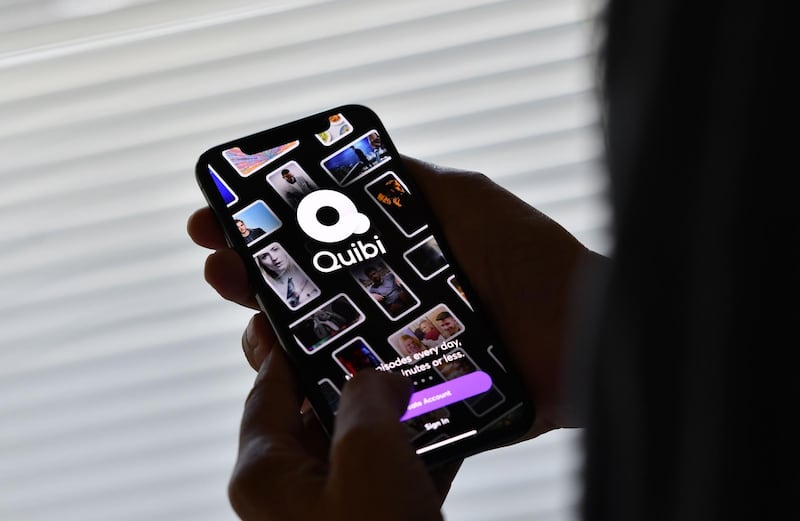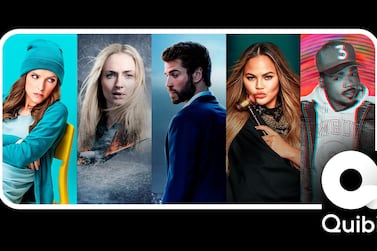Short-form streaming service Quibi is pulling the plug on the platform aimed at smartphone users hungry for entertainment on the go.
The brainchild of Hollywood powerhouse Jeffrey Katzenberg, Quibi launched in April with content tailored towards busy people just as the pandemic compelled them to slow down and stay in.
"Quibi was founded to create the next generation of storytelling," Katzenberg said in a release on Wednesday, October 21.
"The world has changed dramatically since Quibi launched and our standalone business model is no longer viable."
Katzenberg reportedly tried to sell the startup's catalogue of programmes to companies including NBC Universal and Facebook without success.
The streaming service has more than 100 original series spanning a range of genres, with episodes specifically designed for viewing on smartphones and lasting no more than 10 minutes each, according to the startup.
"We have assembled a world-class creative and engineering team that has created an original platform fuelled by ground-breaking technology and IP, enabling consumers to view premium content in a whole new way," Katzenberg said.
Quibi now plans to wind down operations and sell off its assets.
The fledgling platform scored 10 Emmy nominations, including for cop spoof revival Reno 911! and dystopian thriller Most Dangerous Game, including two Emmy wins for actors in #FreeRayshawn.
The multi-billion-dollar streaming platform had bet it could transform entertainment with short, Hollywood-quality clips.
Industry legends and stars from Steven Spielberg and Guillermo del Toro to Jennifer Lopez and Reese Witherspoon were among those who lined up to make films and shows for the youth-focused, smartphone-only service.
Hollywood stars committed to work with Quibi thanks to Katzenberg, a towering figure in tinseltown who ran Disney Studios for a decade and co-founded DreamWorks.
Quibi had also hoped to keep users coming back with daily news, sports and entertainment shows.
"Quibi was a big idea and there was no one who wanted to make a success of it more than we did," Katzenberg and Quibi chief executive Meg Whitman said in a letter to employees posted on Medium.
"Our failure was not for lack of trying; we've considered and exhausted every option available to us."
While Quibi specialised in short-form shows to watch during spare minutes of the day, people who hunkered down at home because of the coronavirus pandemic found time for big-screen options in an increasingly competitive streaming television market.
Disney+, launched by The Walt Disney Company late last year, reported 57.5 million paid subscribers as of the end of June.
It leverages a huge catalogue of Disney animated classics along with its Pixar, Marvel and National Geographic films – not to mention its wildly successful Star Wars franchise.
Meanwhile, Netflix has added 28.1 million paying subscribers so far this year, reporting this week that it now has slightly more than 195 million total subscribers.
Netflix and rival Amazon Prime invest billions of dollars in original content to win fans and keep them loyal.
Apple TV launched late last year with a limited catalogue but a low-priced subscription service, while NBC Universal Peacock and HBO Max streaming television launched earlier this year.
Quibi also had to compete for younger viewers' time with millions of free – often user-generated – videos hosted by YouTube, TikTok, Facebook and Instagram.











